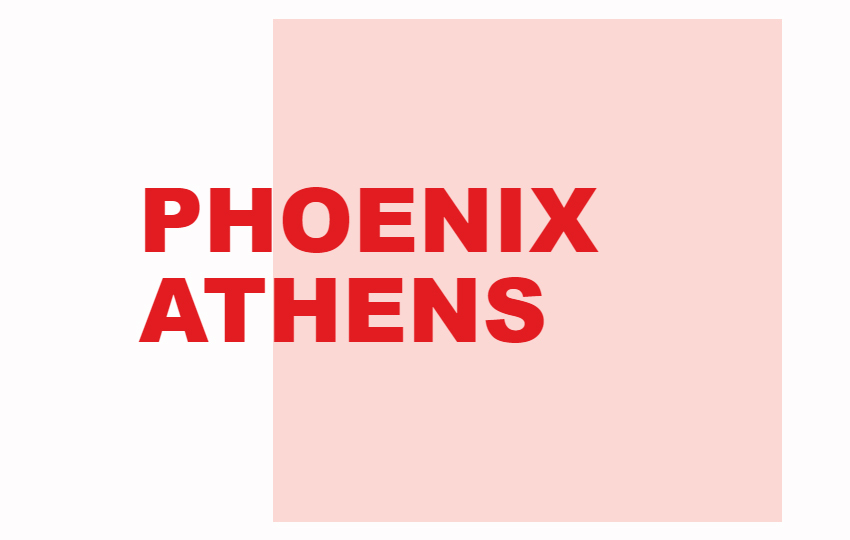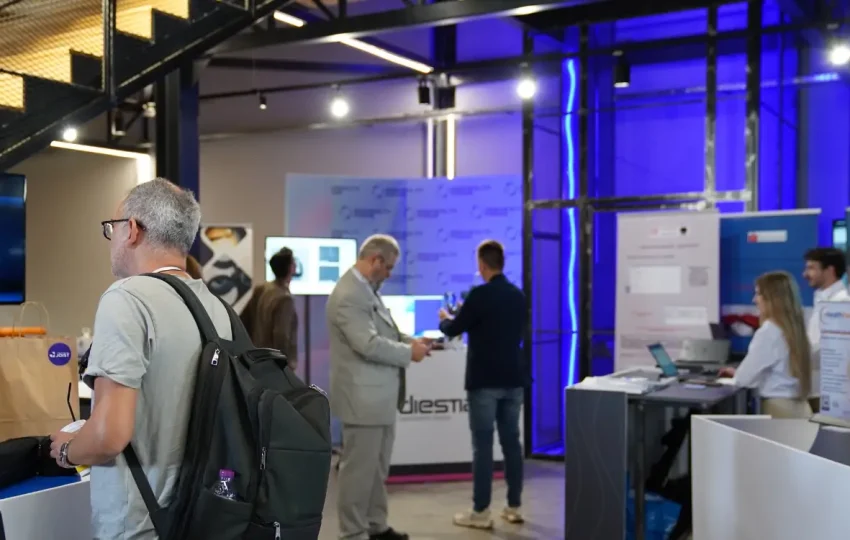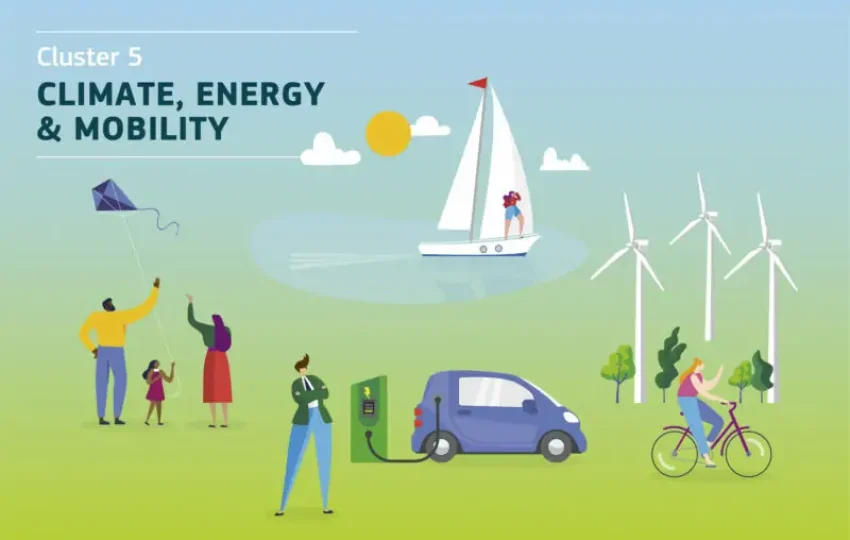Give us information about your organization.
Phoenix Athens is a registered non-profit gallery and residency that was officially started in 2018. The aim of the organisation is to provide artists, academics, and other creatives with space, facilities, and support they require to develop and showcase their work in Greece. Phoenix Athens serves as a welcoming, creative hub where visitors and residents of Athens can discover emerging artists through exhibitions, workshops, and conferences.
The overarching philosophy of the project is to demonstrate how art and design can inspire and transform society by offering new solutions and perspectives. The Residency program, Villa Exarcheia provides international artists and students with a chance to fine-tune their practice and immerse themselves in the diverse and dynamic culture of Athens. The Makerspace production studio also gives artists time and space to discover new material processes and conduct public workshops.
Phoenix Athens has maintained its position financially through gallery sales, donations, and fees that are paid by a growing number of visiting artists in residence. This has helped to maintain the slow but steady growth of the project, with many hours of dedicated work by a small but dedicated staff adding to the success of the project.
What inspired you to create your organization?
As an artist, I enjoy helping other artists to grow and share their work with the public. I was inspired by other artist-run projects and residency programs in Europe and the US such as The Scottish Sculpture Workshop and The Haystack Mountain School of Crafts both of which I have attended.
Both before and after I moved to Greece in 2017, I recognized the opportunities that the city had to offer to artists wishing to discover Greek culture and find their creative voice. Coming from California, which has similar weather and a thriving art scene, I asked myself how I might contribute to the post-austerity cultural economy of Greece. I decided to create a lasting model for a community-based creative enterprise, one that was affordable, inclusive, and would benefit Greek creatives as well as international artists. I also wanted to connect with my Hellenic roots which for several reasons had not been possible before and this has also been an important part of my reason for settling in Greece and developing Phoenix Athens as a long-term project.
After moving to Athens, I observed that there were challenges stemming from exclusion in the art scene, which is to say that access to opportunities in creative fields appeared to be limited to more affluent members of society. This problem, of course, is not unique to Greece, but is especially problematic in light of Greece’s economy since creative careers and activities can help people to stay employed, happy and healthy. There is also a need for creative pathways in education for new citizens in Greece, and so Phoenix Athens offers public workshops and residencies for international artists in order to provide citizens of all backgrounds with lifelong opportunities for learning and creative growth.
There is also a problem of deskilling and the commodification of art in global markets. These phenomena are manifest in contemporary art as well as many major art schools where readymade/post-industrial contemporary art theory has become increasingly pervasive. This results in art graduates who have limited manual skills (which reflects in the work they produce) and are unable to apply their skill to working in other fields, much less share their knowledge or craft with others. To add to this problem, I could see that some of these graduates were not getting the kind of mentoring and support that would help them to hone their skills, gain exposure and develop their practice after their studies. I had experienced a similar phenomenon upon completing my studies in the US, but luckily and with some advice and help from family and my creative peers I found work in museums, the trades (construction) as well as non-profit organizations for the arts. These seemingly random jobs helped me to build my repertoire of skills and maintain my career path as an artist. For these reasons, I decided to develop the Makerspace to encourage “making” and to support artists with developing their technical skills in tandem with their theoretical approach or creative philosophy.
What is your field of expertise?
As the artist and the project director of Phoenix Athens. I have worked in diverse fields to include gallery curating and education (Paris) and art college administration (UK). These experiences as well as my lifelong experience as an artist, have helped me to understand the importance of diversity and inclusion in the arts and education. My artistic training has helped me to understand the needs of artists and the important role that art residencies and artist-run spaces provide a bridge between artists and members of the community.
As a dual French-American citizen of Chinese and Greek ethnicity, it has been important to make inclusion and diversity a part of Phoenix Athens’ ethos since this reflects democratic values, changes, and growth in Greek and European society as well as the contributions that citizens from different backgrounds can provide in the art world.
What is your organization’s impact on society?
Owing to its rich educational and exhibition program, Phoenix Athens has become a creative hub for art practitioners and academics from around the world and continues to do this by addressing problems in society such as ecology, inclusion, and migration through themed exhibitions which address these topics.
Phoenix Athens showcases contemporary artworks from both established and emerging artists of all backgrounds and has provided opportunities for horizontal market and career growth within Athens. Artists who have exhibited at Phoenix Athens Gallery have successfully managed to sell their work and in some cases also managed to secure forthcoming shows at other galleries and museums.
As I mentioned earlier, I have also addressed the problem of deskilling in the arts with Makerspace initiatives and workshops. This facility provides a space where both local and international creatives can refresh their skills as “makers” and learn directly from other artists. Artwork that is produced in the makerspace is sometimes featured in exhibitions, giving members of the local community a chance to witness how their creative endeavors can have significant personal, cultural, and economic value.
What are some of your most important collaborations on EU Projects?
So far I have not directly collaborated with EU Project participants, however, I would certainly like to do this, both within Greece or with other partners in Europe.
I would like to point out that we have collaborated with artists who have been part of EU Projects, most notably the Irish artist Mary Conroy who participated in The Creative Europe’s “Memory of Water.” We have also worked with Onassis fellows and local universities, institutions that have perhaps benefited directly or indirectly from EU cultural funding.
What is something your organization has achieved that you are proud of?
Since opening in 2018, Phoenix Athens has hosted more than twenty artists in residence and curated more than ten exhibitions each year. Even though the gallery initially started as a project space, it has managed to rapidly evolve into an officially licensed and dependable cultural nonprofit organization, helping to inspire creatives and serving the neighbourhood of Exarchia-Neapoli through public exhibitions, community workshops and art sales to residents.
I owe a lot of our success to the artists who have come to produce work and provide workshops. In one instance, we held a workshop-exhibition with Danish artist in residence, Poul Weile who was also involved in the Fluxus movement. We invited members of the community as well as some local artists to produce heads out of clay. At the end of the workshop, an exhibition was held in which the heads were exhibited in a formation, reflecting hegemony and conformity in society. Each head, however, was uniquely different, retaining the style and character of the maker. Both the workshop and the opening event brought artists and citizens from all walks of life together and was an inspiring success that made me proud as well as grateful for the support that we had from both Poul and the local community.
Phoenix Athens has been featured in a series of articles and magazines highlighting its contribution to the Athenian cultural sector. We have also supported initiatives with local art institutions such as The American College of Greece (a group show of graduates from 2019) as well as graduates from The Athens School of Fine Art. More recently we have also established a partnership with other creative spaces in Athens which is called Athens Artcore, as well as a much larger body of artists, organizations, and cultural practitioners called The Cultural Workers Alliance of Greece or CWAG. These collaborations and partnerships have reinforced a sense of common purpose and solidarity and serve as a reminder that through inclusion and teamwork great things can be achieved.
What kinds of projects do you want to work on?
Our projects focus upon ecology, free lifelong education, social equality, and transparency and we would like to make vital long-term contributions in these areas by partnering with other like-minded organisations and individuals. We intend to continue developing exhibition projects in the dynamic context of Hellenic society and culture through enriching educational programs and by allowing time and space for artists, academics, and curators to research, question, and study in a public-facing and welcoming environment.
What is it that you are looking for, from an EU partner?
Phoenix Athens Gallery and Residency adhere to principles of social justice, inclusion, and ecology and we seek to promote and showcase these ideas through creative expression(s) in the arts. We are therefore interested in creating solidarity with state and private organisations and industries in Europe that are aligned with these principles and wish to develop this creative scope or focus as part of their activities.
How did you get to know the EUcalls platform?
I learned about the EUcalls platform through online research on ways to obtain support for cultural organisations.
Why did you choose the EUcalls platform to assist you with your work?
We have chosen to use the EUcalls platform since it offers a great range of services that allow partners to achieve optimum results. We, therefore, recognise the potential this platform would have for helping dedicated cultural organisations such as Phoenix Athens to grow and achieve its aims while providing a collaborative and inclusive vision for European cultural development.
Is there something else you wish to add regarding your organization?
I have witnessed other projects in Greece come and go, but Phoenix Athens is deeply committed to its vision and aims. This model of resilience is inspired by the national character of Greece and its history and we look forward to collaborating with other dedicated professionals and organisations within Europe.


